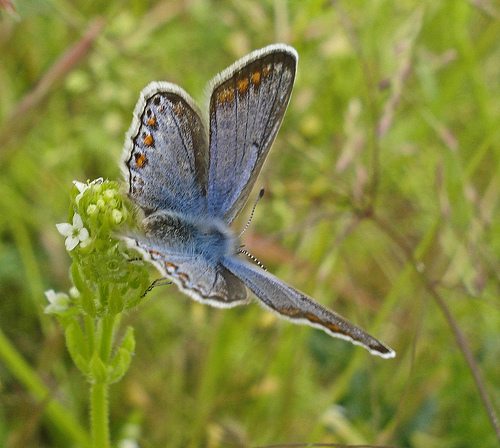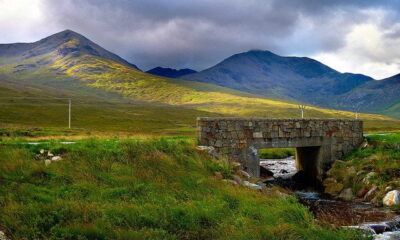

Environment
Stable population helps species adapt to climate change
A stable or increasing population trend is a key factor in helping species respond to a changing climate, researchers from the University of York have found.
According to the study published in Nature Climate Change, many species in the UK have moved northwards, thanks to the warmer climate of the last four decades.
However, the extent of the phenomenon varies from species to species, and scientists have explained this difference by taking into account each population’s stability. In other words, species that have a stable or increasing population, such as certain types of butterfly in Britain, were more likely to move across the country to find suitable habitats.
For example, researchers found that butterflies once commonly found in the south of England had now colonised northern regions and Scotland.
“Species with high habitat availability expanded more rapidly from the 1970s to mid-1990s, when abundances were generally stable, whereas habitat availability effects were confined to the subset of species with stable abundances from the mid-1990s to 2009, when abundance trends were generally declining”, the study says.
According to the authors, their findings ought to help conservationists understand how species can respond to climate variations and redistribute across different habitats.
Prof Jane Hill, one of the authors from York University, said, “Increasing habitat availability in the landscape has been suggested as a way to help species respond to climate change, but our research shows this will only be effective for species whose abundances are stable or increasing.”
Meanwhile Chris Thomas, a professor of conservation biology at York, who also participated in the research, commented, “Conservation management to increase species’ abundances within their ranges is a vital step in the process of helping species respond to climate changes.”
Further reading:
Scottish marine life under threat, says WWF
Warm summer in 2013 led to bumper year for UK wildlife
Study reveals decline of 16 birds species in the UK


 Environment12 months ago
Environment12 months agoAre Polymer Banknotes: an Eco-Friendly Trend or a Groundswell?

 Features11 months ago
Features11 months agoEco-Friendly Cryptocurrencies: Sustainable Investment Choices

 Energy11 months ago
Energy11 months agoThe Growing Role of Solar Panels in Ireland’s Energy Future

 Energy12 months ago
Energy12 months agoHow Renewable Energy Can Help Combat Climate Change, According to Indra Energy




























